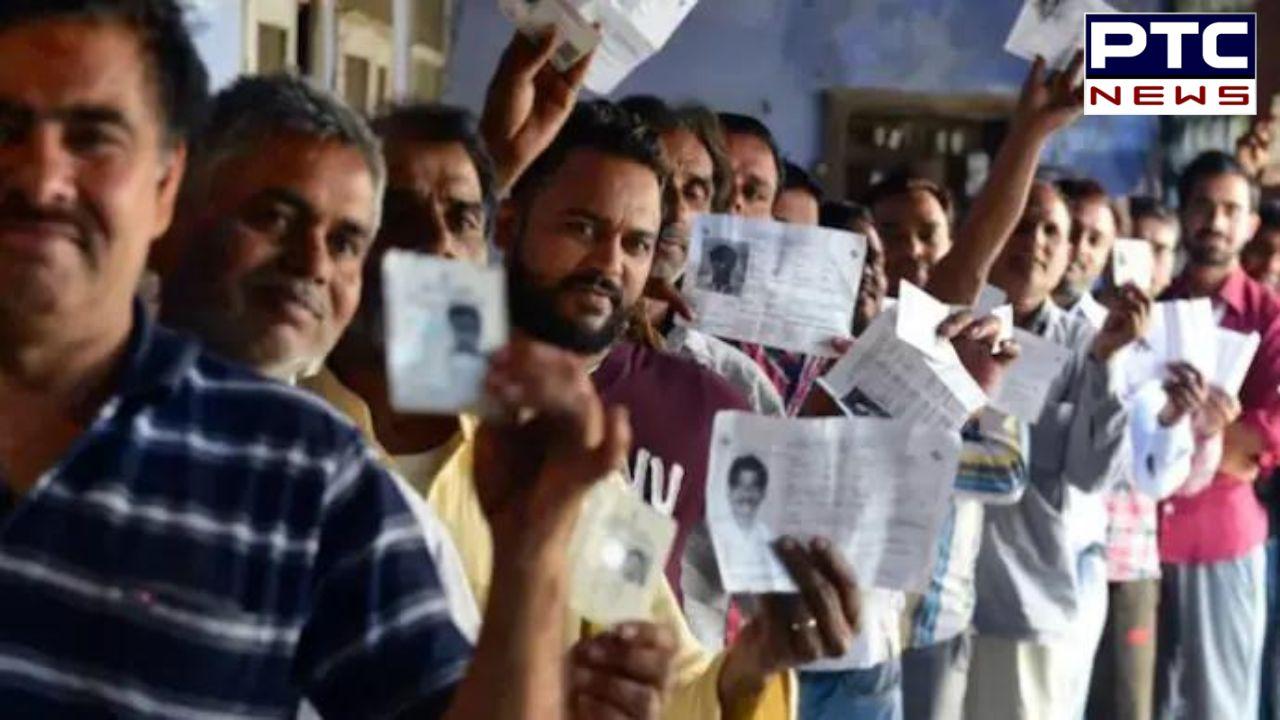

Decoding Maharashtra and Jharkhand poll results: How welfare and identity shaped the mandate | Explained
PTC Web Desk: The recent Assembly elections in Maharashtra and Jharkhand have delivered a clear mandate, with the incumbent parties returning to power with stronger majorities. This outcome starkly contrasts with the Lok Sabha results less than six months ago, raising critical questions about the political dynamics at play. What explains this sudden shift in voter preference? The answer lies in a blend of welfare policies, economic considerations, and identity politics.
Welfare schemes as vote magnets
One common factor in the victories of the Jharkhand Mukti Morcha (JMM)-led alliance in Jharkhand and the BJP-led Mahayuti government in Maharashtra is the strategic announcement of welfare schemes aimed at women. Jharkhand introduced the Maiya Samman Yojana, while Maharashtra rolled out the Ladki Bahin scheme. These cash transfer initiatives resonated strongly with female voters, who form a crucial voting bloc.
The success of such schemes is not new. Leaders like Mamata Banerjee in West Bengal and Shivraj Singh Chouhan in Madhya Pradesh have leveraged similar programmes to win decisive mandates. Even the BJP in Haryana incorporated cash transfers for women into its electoral promises. The message is clear: tangible welfare initiatives, often dismissed as "freebies" by critics, have become indispensable in India’s electoral landscape.
Whether in a resource-rich state like Maharashtra or a relatively poor state like Jharkhand, voters from economically weaker sections expect direct financial support. These programmes address growing inequalities, providing a form of economic relief that resonates deeply with the underprivileged.
_4990e93910cd0ea1c3205076a513df84_1280X720.webp)
The Fiscal debate: Welfare vs Austerity
The BJP’s loss in the 2024 Lok Sabha Elections also offers insights into the role of economic policies. Critics argue that the government’s fiscally conservative stance in the 2024 interim budget alienated underprivileged voters. Unlike the 2019 interim budget, which introduced the PM-KISAN scheme benefiting farmers, the 2024 budget lacked substantial welfare measures.
PM-KISAN, a retrospective cash transfer programme, was credited with turning around rural discontent ahead of the 2019 general elections. In contrast, the 2024 budget focused on fiscal consolidation, cutting back on revenue expenditure. This move, seen as prioritising elite interests over the underclass, likely cost the BJP valuable votes.
Voters, particularly those facing economic insecurity, expect the government to offer a safety net during tough times. Ignoring these expectations, as evidenced in the BJP’s fiscal policies, can have electoral consequences.
Identity politics: Consistency is key
Identity continues to play a significant role in shaping electoral outcomes, but with nuanced dynamics. Hemant Soren, the Chief Minister of Jharkhand, has emerged as a formidable Scheduled Tribe (ST) leader. His party, JMM, not only swept the ST-reserved seats but also built a coalition that bridged historical divisions between ST and non-ST communities.
In contrast, the BJP's efforts to shift the narrative from an ST-versus-non-ST binary to a Hindu-Muslim divide failed in Jharkhand. Despite deploying its top leaders, including Assam Chief Minister Himanta Biswa Sarma, the BJP struggled to counter Soren's stronghold among ST voters.
In Maharashtra, identity politics took a different turn. The Shiv Sena, historically rooted in Hindutva and regional pride, suffered a setback. Uddhav Thackeray’s decision to ally with the Congress and the NCP alienated his core base. His faction of the Shiv Sena lost ground to the BJP and Eknath Shinde’s faction, which retained a more consistent ideological stance.
The lesson here is clear: identity politics works when parties maintain ideological consistency. Long-standing identity-based movements like the JMM’s ST focus or the Shiv Sena’s Hindutva-driven agenda yield results when not diluted by opportunistic alliances.
Why voter expectations have shifted
The assembly election results underscore two critical voter expectations:
Voters demand policies that address their immediate economic concerns. Welfare schemes, even if small in monetary value, demonstrate the government's commitment to alleviating financial hardships.
Voters reward parties that stay true to their ideological roots while addressing local aspirations. Attempts to force-fit national or abstract ideologies often fall flat in the face of entrenched regional dynamics.
The electoral strategies observed in Maharashtra and Jharkhand reveal broader trends in Indian democracy. Economic inequality and social divisions are shaping voter expectations, forcing political parties to adopt pragmatic approaches. Welfare policies have become a democratic response to unequal economic growth, while identity-based politics requires a consistent and authentic approach.
The BJP’s contrasting performances in the Assembly and Lok Sabha elections serve as a cautionary tale. Neglecting grassroots-level concerns in favour of fiscal austerity or top-down ideological narratives can alienate key voter bases.
- With inputs from agencies
